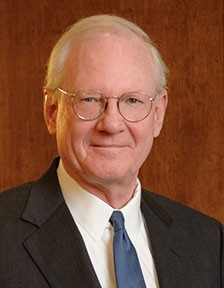Gurley wins another round in the quarry case
More than 10 years ago, litigation began between M&N Materials, Inc. (plaintiff), and the town of Gurley (defendant) with a state lawsuit filed on April 14, 2005, in Madison County Circuit Court. On November 13, 2015, the U.S. District Court for the Northern District of Alabama issued a decision granting the town a motion for summary judgment. This means that, as a matter of law, the town has won at the U.S. district court level. As of this date, the plaintiff may still file an appeal of the district court’s decision.
This federal decision follows several decisions by the Alabama Supreme Court that favored the town of Gurley over M & N in which Lanier Ford attorneys George Royer and David Canupp represented Gurley.
In the original suit filed over 10 years ago, M&N maintained that the town had “inversely condemned” its property in violation of the Fifth Amendment of the U.S. Constitution. Because of the implication of the Fifth Amendment, the town removed the claim to federal court because of a federal issue being involved, but then moved to dismiss because the case wasn’t “ripe” for decision since the plaintiff had not exhausted all its state remedies.
In response to the town’s motion, the plaintiff voluntarily amended its complaint to withdraw all references to the Fifth Amendment. Accordingly, the town’s motion to dismiss was granted and the remaining state-law claims were remanded to the Madison County Circuit Court.
At the state court level, the plaintiff maintained violations of two different sections of the Alabama state constitution. A circuit court jury returned a verdict in favor of M&N for $2.75 million for damages, plus $1.25 million in attorney fees. If Gurley (with a population of approximately 900 people) had been required to pay this amount, it would have gone bankrupt.
But in two different decisions, the Alabama Supreme Court ruled against M&N in its inverse condemnation claims. In short, the Alabama Supreme Court ruled a claim for inverse condemnation is not legally recognizable under the Alabama constitution.
See earlier article about these decisions.
At this point, M&N returned to federal court to pursue its claims based on the U.S. Constitution. These claims can be summarized as (a) uncompensated inverse condemnation (taking, or exercise of eminent domain) under the Fifth Amendment and (b) denial of due process under the Fourteenth Amendment.
Fifth Amendment Claim
The U.S. District court analyzed the plaintiff’s inverse condemnation claim in terms of the three factors required by decisions of the U.S. Supreme Court: economic effect; interference with reasonable, investment-backed expectations; and character of governmental action.
To prevail on economic effect, the plaintiff has to be deprived of all or substantially all economic use. Since M&N sold the land for $1 million (after having paid roughly $553,000 for it), the court found that the plaintiff had not been deprived of all or substantially all of its economic use.
To succeed on its economic interference claim, M&N had to show that its expectations were reasonable and were eradicated. But evidence showed that M&N knew about the community opposition to the quarry. Furthermore, the fact that a plaintiff can’t develop what it originally wanted does not mean that the plaintiff’s investment-backed expectations were eradicated. Since the plaintiff was able to sell the property at a profit, the plaintiff’s economic expectations weren’t eradicated.
Because the town’s action of zoning the property for agricultural purposes was motivated by the desire to promote the health, safety, morals, and general welfare of its residents, the court ruled that character of the town’s governmental action served the public interest. Because a quarry uses blasting with explosives, the town had serious concerns about air quality (dust), damage to homes and businesses, heavy traffic on the road to the quarry, damage to existing streets from heavy trucks, and damage to the town’s water-storage tank located on the road.
Expert testimony showed that flying rock from the blasting operations could travel from 2,000 to 3,000 feet from the blast site and could hit—
- A public housing complex.
- Numerous private apartments and private residences (some of which had been designated as historic).
- The town’s water-storage tank.
- Two propane gas distribution centers.
- A restaurant.
- A gas station.
- An electrical substation.
- The Madison County Elementary School (and its playground and activity field).
- Tennessee Valley Authority (TVA) high-voltage power lines (located 200 to 500 feet from the site of potential blasting).
Another expert testified that the value of surrounding property would probably decrease by about 12%.
Fourteenth Amendment Claim
The court indicated that, for M&N’s case to survive the town’s motion for summary judgment, M&N had to show the town’s conduct didn’t satisfy rational-basis scrutiny. M&N maintained that the town’s rationale for its zoning was pretextual; but the court pointed out that the town only had to identify some legitimate purpose that it could have been pursuing, not its actual motivation. Then, the court said, the town had to show that the zoning ordinance furthered that purpose. In other words, the rational-basis test is concerned with the existence of a rational basis, not the actual basis considered by the town council.
Because the town’s reasons included preventing the diminution of nearby property values, preventing the danger of flying rock and ground vibration, and avoiding interference with TVA high-voltage lines, the court found that the town’s conduct had a rational basis.
For these and other reasons, the town’s motion for summary judgment was granted. See M&N Materials, Inc., v. Town of Gurley, decided on November 13, 2015, by the U.S. District Court for the Northern District of Alabama.
Attorneys Related to this News Item
Related Practice Areas
- Eminent Domain
- Local Governments & Municipalities
- Governmental Liability
- Municipal & County Government Law
- Planning, Zoning, Subdivision & Land Use



